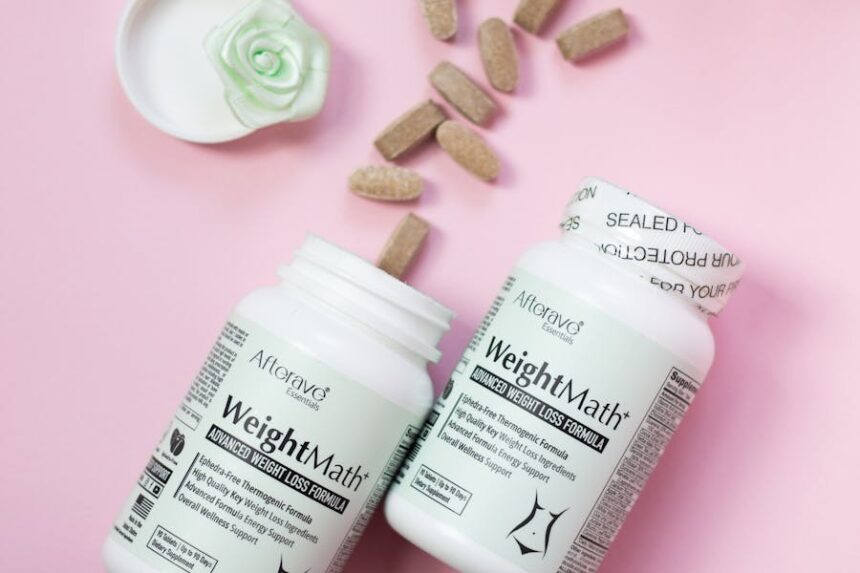Bloating is an uncomfortable and often frustrating condition that many of us experience. It manifests as a feeling of fullness, tightness, or swelling in the abdomen, often caused by the buildup of gas or digestive issues. Common culprits include overeating and consuming gas-producing foods. While occasional bloating is usually harmless, persistent bloating can significantly affect your comfort and quality of life.
Probiotics are live microorganisms that may have health benefits when consumed in adequate amounts. These “good” bacteria support a healthy balance in your gut, digestion, gas production, and relieving bloating. Incorporating probiotics into your daily routine through supplements or fermented foods may relieve bloating naturally and effectively. In this blog post, we’ll explore how to Restore your gut health with probiotics and help you achieve a happier, healthier gut. Let’s dive in and discover.
Probiotics for Managing Bloating
Probiotics are bacteria that support a healthy balance in the gut microbiome, which may assist with optimal digestive function. When the gut microbiome is out of balance, digestive issues like gas, bloating, and discomfort can become more common. Probiotics work by replenishing the gut with good bacteria, which may potentially reduce bloating and improve overall gut health. This restoration of balance can significantly alleviate symptoms of bloating and promote a smoother digestive process.
Specific Strains of Probiotics to relieve Bloating
Not all probiotics are created equal, and certain strains may be better in relieving bloating and improving digestive health. Some of these strains include:
- Bifidobacterium lactis: May help reduce bloating by maintaining regular bowel movements and supporting overall gut health.
- Lactobacillus plantarum: Known for its anti-inflammatory properties, this strain may help reduce intestinal inflammation and gas production, which are common causes of bloating.
Importance of Consistency
Taking probiotics consistently may help maintain a balanced gut microbiome. Incorporate them into your daily routine. Set a specific time each day, such as with breakfast or before bed, to take your probiotic supplement. Consistency helps to establish a stable population of beneficial bacteria in your gut.
Incorporating Probiotic-Rich Foods
In addition to supplements, consuming probiotic-rich foods may provide added benefits for gut health. Include the following foods in your diet:
- Yogurt: Choose plain, unsweetened yogurt with live and active cultures.
- Kefir: A fermented milk drink rich in various probiotic strains.
- Sauerkraut: Fermented cabbage that contains beneficial probiotics.
- Kimchi: A spicy Korean dish made from fermented vegetables.
- Miso: A fermented soybean paste used in soups and dressings.
- Tempeh: A fermented soybean product that is a good source of probiotics and protein.
Lifestyle Changes to Support Gut Health
Diet: A diet high in fiber, fruits, vegetables, and whole grains may support a healthy gut microbiome. Avoid excessive consumption of processed foods, sugars, and artificial sweeteners, which can disrupt gut bacteria balance.
Hydration: Drink plenty of water throughout the day to support digestion and prevent constipation, which can contribute to bloating.
Exercise: Regular physical activity may support healthy digestion and can help alleviate bloating. Aim for at least 30 minutes of moderate exercise, such as walking, swimming, or yoga, most days of the week.
Improving Digestion and Reducing Bloating
- Eat Slowly: Chew your food thoroughly and eat slowly to prevent swallowing air, which can cause bloating.
- Small, Frequent Meals: Opt for smaller, more frequent meals instead of large meals to ease the digestive process and reduce bloating.
Consistent use of probiotics, combined with a healthy diet, regular exercise, and stress management, may help you to achieve and maintain a balanced, comfortable digestive system.
Conclusion
In the quest for digestive comfort and overall well-being, probiotics can be a helpful tool. By harnessing the power of these beneficial bacteria, individuals can effectively manage bloating and promote a healthier gut environment. Probiotics restore balance to the gut microbiome, reducing inflammation, and supporting digestion and alleviating discomfort and bloating.
Embrace the journey toward better digestive health by incorporating probiotics into your daily routine. Whether through supplements or probiotic-rich foods, each step forward contributes to a healthier gut and a happier you.




